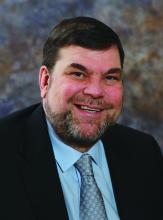Grandma Exie used to tell a story about her grandmother on her father’s side, who lived in northeastern Arkansas. Towards the end of the Civil War, Northern and Southern troops were expected to “live off the land,” and both sides had torn through her poor dirt farm and carried off all the livestock and crops. The only thing they didn’t take was her bull mastiff, who was a pretty fair hunting and guard dog. Starving, she had no other option than to pack up and head east for Tennessee, where her husband was stationed with Joseph Hooker’s army. Many thousands of destitute women and children, most of whom were related to one of the troops, followed the army, where some of the army’s rations could be shared with them.
She headed out on foot and all went well until day 3 or so, when a panther attacked them, but she, armed with a branch, and her loyal dog were able to drive it off. The panther followed them for 3 days while she hid in a tree at night with her dog at the foot of a tree. Eventually, the panther gave up and she made it to Tennessee to safety.
Grandma Exie said her grandmother had “grit” and used this story whenever any of us would complain about how hard times were or how we were mistreated.
It is time for all of us to buck up and show a little grit in the face of a viral pandemic and social unrest. The answers are not easy or clear, but our health care system and our nation have faced much greater challenges. The 1918 flu pandemic was much more devastating, killing millions worldwide, and recall, 620,000 died in the Civil War, more than all other American wars combined. There is a deep seam of grit and resilience in Americans. We don’t always get it right immediately, but we usually do in the end.
The protests are justifiable outrage over police brutality, fueled by a high unemployment rate, both of which are a cause for frustration. The looting and destruction appears to be opportunistic thievery and some organized vandalization in my opinion. Most of the damage caused by riots and looting is not covered by insurance, and this will be a death blow to many small businesses already facing major financial setbacks as customers have stayed home for months and laying off staff has become necessary.
As for the impact on our practices, most physicians have been lucky and not been looted or burned out. In most of the country, the disease incidence has become lower, and the risk of not seeing the doctor is now greater than catching COVID-19.
So show grit, be careful, be vigilant, and practice your profession. Support your local small businesses, particularly if they have been the victims of senseless violence. We will work our way through these times.
Dr. Coldiron is in private practice but maintains a clinical assistant professorship at the University of Cincinnati. He cares for patients, teaches medical students and residents, and has several active clinical research projects. Dr. Coldiron is the author of more than 80 scientific letters, papers, and several book chapters, and he speaks frequently on a variety of topics. He is a past president of the American Academy of Dermatology. He had no disclosures related to this column. Write to him at dermnews@mdedge.com.


